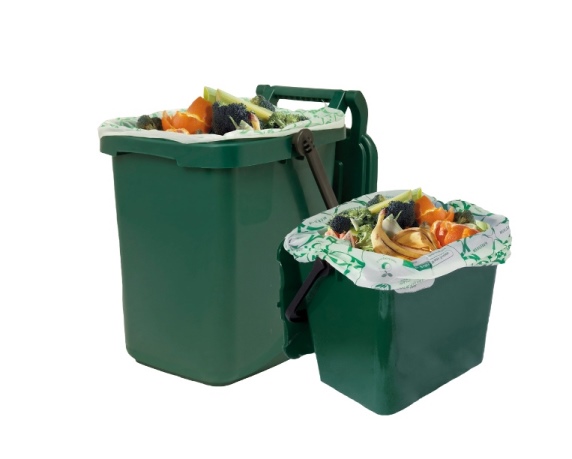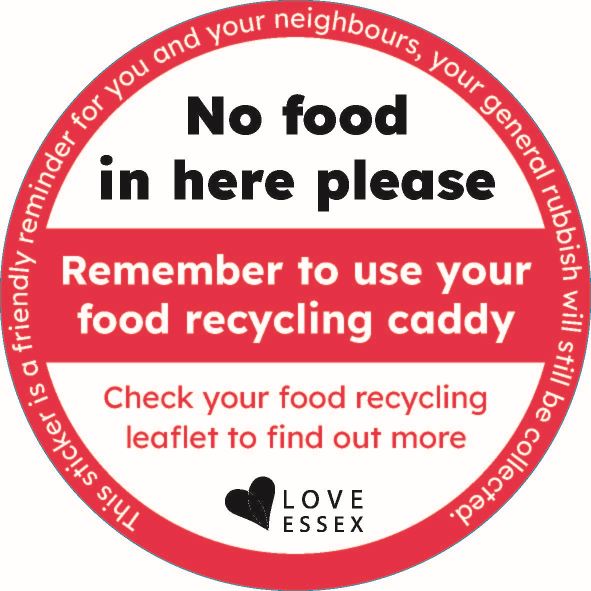 To recycle food waste, you have a small kitchen caddy to use inside your home and a larger external caddy that we empty.
To recycle food waste, you have a small kitchen caddy to use inside your home and a larger external caddy that we empty.
Only houses have food bins - we do not collect food waste from flat blocks.
To keep your caddy clean we recommend that you use compostable liners, which are available from most supermarkets or wrap your food waste in newspaper.
We collect external food waste bins every week.
If you have excess food waste, you can put this in a cardboard box (securely) and place the box on top of your food caddy. If you regularly have excess food waste, you can request an extra caddy
We can collect:
- fish
- meat and bones
- bread, pastries, pasta and rice
- tea bags and coffee grounds
- plate scrapings
- fruit and vegetables
- dairy products
- shellfish and egg shells
We cannot collect:
- plastic bags and other plastics - even if they are biodegradable
- glass
- can and tins
- oyster shells
- pet food
- liquids
- garden waste
- coffee cups
Once collected the food waste is taken to an anaerobic digestion plant where gas from the processed waste is used to make green energy which goes to the national grid to power homes. The process also makes a liquid fertiliser used on farmland to help grow more food.
If you are looking for an alternative way to dispose of your food waste, you may want to consider composting.
Increasing food waste recycling in Essex
 We are working with Essex County Council to encourage residents to recycle more of their food waste.
We are working with Essex County Council to encourage residents to recycle more of their food waste.
You may have noticed a sticker on your bin, a roll of compostable food caddy liners and an information leaflet arrive at your door.
In Essex, roughly 25% of waste thrown away in the general rubbish is food. Not only is this a waste of money but it’s also damaging the environment.
You can find out more about this project on the Love Essex website.